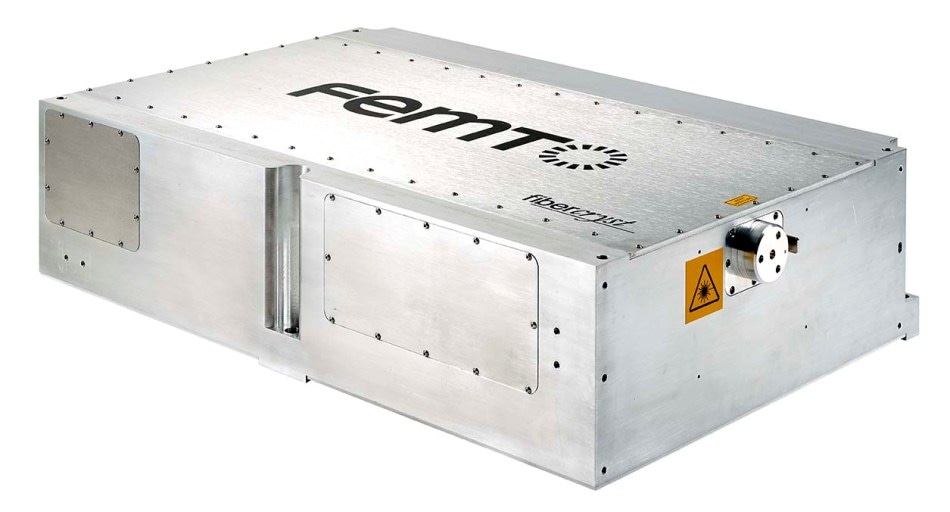Sep 2 2016
Elliot Scientific is pleased to introduce Fibercryst, the only manufacturer of short pulse lasers and amplifiers utilising the innovative Single Crystal Fibre technology (SCF).
 FEMTO laser
FEMTO laser
Originally developed from a series of University research programs, the SCF technology has been refined and commercialised by Fibercryst and patented jointly with the Laboratoire Charles Fabry of the Institut d'Optique. Named Taranis, the technology offers significant performance advantages over existing technologies.
The products range from a full featured femtosecond micromachining laser, through a stand-alone commercial amplifier, to individual amplifier modules.
FEMTO
FEMTO is Fibercryst's Taranis-based laser system for the end user or laser micromachining product developer. It is a powerful industrial femtosecond pulse width laser offering output powers up to 25 W for high throughput, high quality micromachining. Delivering pulse energies in excess of 80 µJ (@ 100 kHz) in pulse widths of less than 900 fs, and with repetition rates selectable between 100 kHz and 2 MHz, FEMTO is ideal for cutting and drilling of hard materials, cold machining of polymers and composites, and micromachining and structuring of surfaces, for example medical devices and semiconductors.
Amplifier
A stand-alone add-on amplifier for the developer looking to increase the power and energy output of an existing installation has been designed for a wide range of seed lasers providing either fibre coupled or free propagation mode inputs. Fibercryst's Taranis amplifier boosts a laser's high average power, high peak power (up to 30 MW) and high pulse energy to free space.
Laser Gain Module
For the researcher, the Taranis Laser Gain Module is a revolutionary component for developing or configuring an individual amplifier design. From femtoseconds to CW, Taranis is a unique solution to provide high peak power and high energy amplification using a simple and compact design. By using a single-crystal with a long length and a small diameter, short pulse amplification delivering a high intensity, linearly polarised laser light with superb beam quality and adjustable repetition rate can be achieved.
Taranis SCF amplifier modules offer preservation of seed laser signal quality, M2 (m squared), polarisation, and fs to ns pulse widths. Available in Yb:YAG fibre for 1030 nm or Nd:YAG for 1064 nm wavelengths, Taranis delivers peak powers of 30 MW, average powers of 250 W, and 5mJ of energy.
Taranis laser gain modules are water-cooled and can be used with one or two pump diodes, and in single or double-pass geometries. The inherent pump light guiding property of Taranis also makes it ideal for end-pumping configurations.
Sub-ns laser system
Fibercryst also offers an affordable, unique 1064 nm sub-ns laser system delivering more than 3 MW of peak power for use in research and test labs. Designed using MOPA architecture as a standalone unit combining a commercial 500 ps seed laser with the Fibercryst Taranis amplifier, it takes full advantage of the technology to provide a polarised beam, TEM00 output and 2 mJ of pulse energy for applications in LIBS, LIDAR & nonlinear optics; Supercontinuum, OPO, THz generation; and the biosciences.
For more information about any of the products detailed above, please contact Elliot Scientific on +44 (0)1582 766300 or visit www.elliotscientific.com/